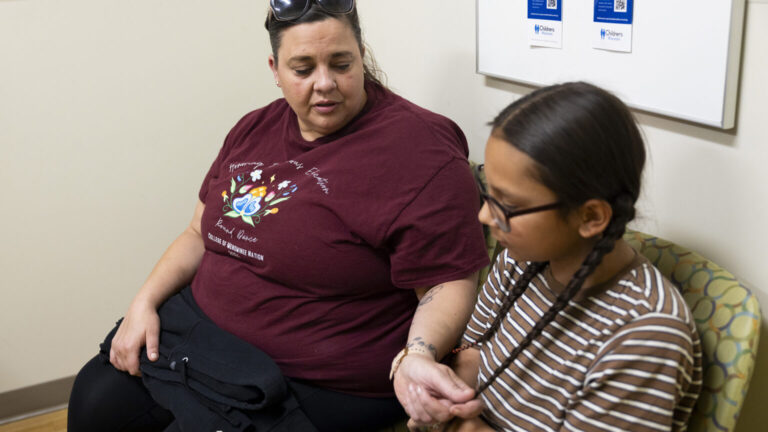BC Schools Revamp Report Cards for Improved Student Assessments
BC Schools Enhance Report Cards: A New Era in Student Assessments
Introduction
Ever looked at a report card and thought, “What does this even mean?” Well, if you’re in British Columbia, you might soon have a different experience. Recent changes to how report cards are structured aim to provide a clearer, more informative picture of student progress. This initiative is all about ensuring parents, students, and teachers are on the same page when it comes to assessing academic performance. Let’s dive into the details of what’s changing, why it matters, and how it could impact students and families.
The Need for Change
What’s Wrong with Traditional Report Cards?
For decades, report cards have been centered around letter grades and numbers, which often left students feeling confused and parents scratching their heads. You receive a grade like a “B” or a “65%,” but what does that truly reflect? Is your child just slightly behind the curve, or are they struggling in fundamental areas?
Traditional report cards typically focus on:
This system can be a significant hurdle for effective learning. It promotes competitiveness among students rather than collaboration and often fails to reflect a student’s complete picture of growth.
The Shift to a Comprehensive Approach
The updated report cards in BC schools aim to adopt a more comprehensive approach to assessments that goes beyond grades. The goal is to capture a fuller array of student capabilities and progress. By focusing on competencies such as critical thinking, collaboration, and communication skills, educators believe they can encourage a growth mindset in students.
What’s New in BC Schools’ Report Cards?
A Focus on Competencies
Rather than fixating solely on grades, teachers will now evaluate students on essential competencies. Think of these as skills that are increasingly relevant in today’s world—problem-solving, creativity, and emotional intelligence. This switch allows students to receive feedback that is more constructive and tailored to their growth.
Clearer Communication with Parents
One of the key features of the revamped report cards is enhanced communication tools for parents. The new format is designed to be user-friendly, translating complex educational jargon into plain language. You won’t have to feel like you need a translation dictionary to understand your child’s performance.
Regular Feedback
Gone are the days when you only hear from the school at report card time. The new system relies on ongoing assessments, which means parents will receive updates throughout the school year. This enables families to stay involved and address any concerns before they snowball into bigger issues.
Personalized Learning Plans
Each student will receive a customized learning plan that identifies their strengths and areas for improvement. Imagine having a roadmap that outlines exactly where to focus your energy to achieve the best results.
Why Does It Matter?
Preparing for a Complex Future
The world’s changing at a breakneck speed. Are we preparing our kids for this rapidly evolving landscape? The revamped report cards in BC reflect an understanding that academic performance isn’t the only measure of success. By focusing on competencies, we better prepare students for the complexities of the modern workplace.
Bridging the Gap Between Home and School
Think about it: Parents want to be involved in their child’s education but often feel like outsiders. With clearer, more detailed communication from schools, parents can become crucial allies in the learning process, supporting their children and working with teachers to address challenges.
The Impact on Teachers
A Shift in Perspective
Teachers are not just measurement instruments; they’re mentors. With the introduction of these comprehensive assessments, they can adopt a more personalized teaching approach and get to know their students better. They can gauge not just how much students know but also how comfortable they are applying that knowledge.
Professional Development
As schools move to this new reporting style, teachers will also require training and resources. Schools are investing in professional development to ensure that educators are equipped to assess students based on the new criteria. After all, knowledge is a two-way street, and a well-informed teacher means a more empowered student.
Challenges Ahead
Resistance to Change
While the transition to this new report card format brings many benefits, change is never easy. Some educators and parents may resist this new approach simply because it’s different from what they’re used to. This is a classic case of “if it ain’t broke, don’t fix it,” but let’s be honest: it was broken.
Evaluation Consistency
With this new focus on competencies, ensuring consistent evaluations across different schools and classrooms is a challenge. It’s crucial that teachers interpret and apply these new assessment frameworks uniformly to maintain a level playing field for all students.
Balancing Quantitative and Qualitative Measures
While qualitative assessments are vital, can they exist in harmony with the quantitative measures we’ve always known? Striking that balance between numbers and narratives will be key. After all, many parents still look for that comforting “A” on the report card, don’t they?
Conclusion
The revamping of report cards in BC schools marks a significant step in revolutionizing how we approach student assessments. By migrating away from a one-size-fits-all grading system to a more personalized, competency-based approach, schools are prioritizing student growth, parental involvement, and educators’ insights. It’s an exciting time for education in British Columbia, and we can only hope that this initiative inspires other regions to follow suit. After all, education is not just about surviving in the classroom; it’s about thriving in life.
Frequently Asked Questions (FAQs)
1. What are the main changes to the BC schools’ report cards?
In BC, report cards will now focus on competencies instead of just letter grades, providing clearer communication and ongoing feedback to parents.
2. How will these changes affect my child’s education?
The new report cards aim to give a more complete picture of a student’s abilities, helping educators tailor their teaching and support personal growth.
3. Will parents receive more frequent updates about their child’s progress?
Yes! The revamped system promotes regular updates rather than waiting for quarter-term reports.
4. How will teachers be supported during this transition?
Schools are investing in professional development to ensure that teachers have the training needed to implement the new assessment methods effectively.
5. Can these new report cards be used universally?
While they aim for consistent evaluation, the success of these report cards will depend on how uniformly the evaluation methods are adopted across different schools and classrooms.







